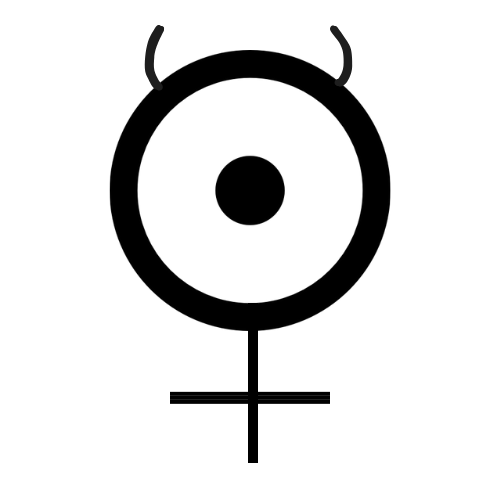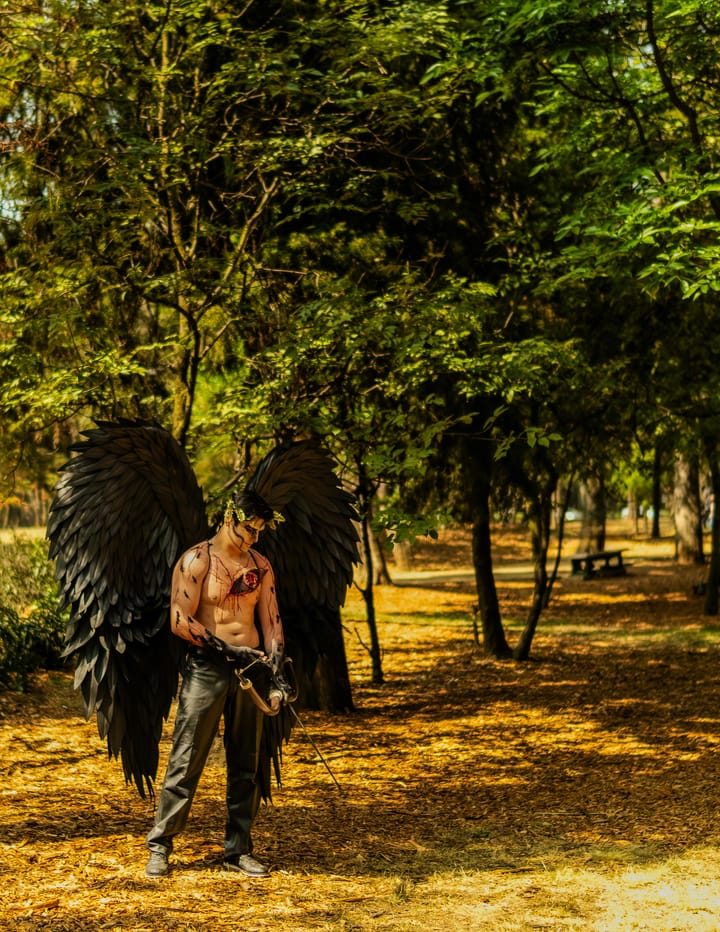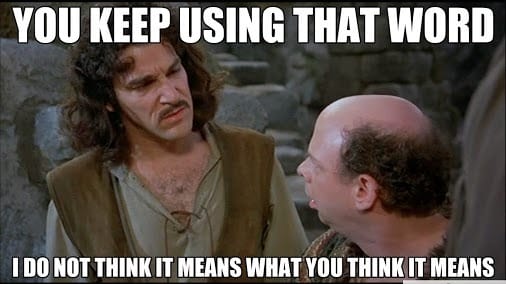Meditations on Masculinity
Not to infer the common misconception that masculinity as a quality is solely, or even primarily, held by cis men, but for the sake of the conversation let's start with cis men. We have all had shitty experiences with cis men. Even cis men have shitty experiences with other cis men. That is why feminist thinkers invented terms like "the patriarchy." Our society is predicated on hierarchy and violence, glorifying power and dramatic acts made to grasp it above all else, and has excused much of it by calling it "masculinity."
The phrase "toxic masculinity" was supposed to put a name to this phenomenon, illuminating that there are other forms of masculinity that are not toxic. Conversations about examples of healthy masculinity have lagged behind this point. However, lately, more have started to come to some level of profile. There's the resolution to Ken's story in the Barbie movie. Joseph Gordon Levitt and Daniel Radcliffe made headlines about how they cry more after the births of their baby sons. Dr. K, an addiction-specialized psychiatrist who has talked about common male mental health issues, has risen as a huge influencer with his YouTube channel of 2.4+ million subscribers. There is, in fact, a small cottage industry of content creators whose entire brands are in teaching other men to acknowledge their (invariably cis women) partners' bids for attention and respond to conflict in ways that are sensitive and affirming.
My own narrative about coming into my masculinity is not extremely recognizable, even within the queer community. When I was growing up, I was a Daddy's Girl, which is a polite term for saying my father and I were enmeshed. So my empathy for his emotions—which are heavily influenced by his PTSD and neurodivergence if not other underlying causes—was deeper than most other people's toward their fathers. Although in retrospect this dynamic was unhealthy and inappropriate, leading to severe consequences for my development as a person, at the time I experienced it as unequivocally positive.
The last time I saw my father in person a few months ago, we were clothes shopping. In the course of this, even though I was finally in the process of individuating from him, I fawned in the most unusual way. I found a shirt I really liked and held it up to him, pretending to see if it looked good on him like I must have done so many times over the course of my life while not knowing what I was actually doing. At this point, he knew about my being non-binary so for the first time, he recognized my gesture... and purchased the shirt for me.
~
As a toddler, my mother was gifted a doll and stroller combo. Instead of playing Mama, she horrified my grandmother by grabbing the stroller and running.
My grandmother, raised as second generation from a Jewish-American immigrant family and whose grandfather had been a public-facing politician in Brooklyn, could not conceive of a girl behaving this way. It was my grandfather who took my mother out and taught her how to throw a ball properly. Later, in a time where public school sports were typically only played by boys, my mother was the first girl on the basketball team.
My brother's friends have referred to my mother as a DIY Mom. A proudly identified tomboy, she learned to do many things around the house from my grandmother because my grandfather was a traveling salesman frequently away on business. My mother also told me recently that she has historically accompanied her female friends to dealerships because many other women her age don't understand the ins and outs of car purchasing.
One more thing: My mother and I share irregular to the point of untrackable menstrual cycles. I got it worse, as mine also comes with Premenstrual Dysphoric Disorder (PMDD) when I am not on birth control. Upon initial labs, my testosterone levels clocked in on the higher side of the average range for someone born with my body shape. By the one month follow up, despite taking only half of the lowest prescribed dose of HRT, my levels had already doubled.
Though she would shudder at being called it, my mother is masculine.
~
"As you have transitioned, your energy has changed a lot," someone who I thought was a close friend told me yesterday. "I am realizing I feel triggered by you because you remind me of people I used to know and so I pull back."
Trying to process this while tipsy and weighing my ongoing work on boundaries, I asked tentatively, "Is it something I'm doing?"
"No, it's nothing you're doing. It's just..."
It's just that for the first time in my life, I'm finally me. And even though this friend is also trans and was at first extremely supportive of my transition, being me is now unpleasant to them.
"When I was microdosing testosterone, that's when I lost the most friends," another friend told me the next day. "I didn't really notice the changes in me, but they did. They didn't like that I wasn't acting like a girl anymore. So I had to cut them out."
~
There are actually two gay communities. There are the cis gay men with their bisexual compatriots, who feel varying levels of belonging/awkward about it. And then there is everyone else: the cis lesbians, the cis bisexual women, the non-binary people usually femme-presenting, and the binary trans women/femmes. The first group can sometimes be dangerous; there are trans masc people who have been murdered by men they have met off Grindr. The latter group tends to have events that are "women and non-binary people only" or specifically "no men allowed." This leaves us trans mascs with very little in ways of community.
I say "us trans mascs" because testosterone has lifted me into more fully embracing this part of my gender. In the past I would call myself "trans masc by way of a verb" in relation to my androgyny/bigenderism, trying in all ways non-medical to masculinize in order to balance the "she/her" and femininity strangers insist on perceiving in me. Now with my heart beating faster, my whole body warm enough to withstand a nighttime chill without a jacket, and objects once heavy now practically floating up within my hands, it's not even about masculinity anymore. I'm just something closer to a man.
A flamboyant, exuberant, fancy earrings-wearing, chai latte-drinking, rough-edged, lightly teasing, routinely swearing, adamant man.
A non-binary man. A demiboy*. A homofag.
In a world where people, in many ways rightfully, hate and fear men.
~
When I first fell in deep, deep love (with the object of desire in Gently Murder Me), I did not realize that I felt incomplete without him because a part of myself had located a new channel of which it had hoped to express itself through. We were never in a relationship and I can't explain how this initiated. I was a bisexual female journalist interviewing a bisexual male writer on a queer project he was launching. I reread that interview recently and it started, to my surprise, with him talking about another of his projects led by a non-binary person dating a "female to male transitioning person." There was a moment later on in the interview, a seemingly completely inconsequential moment, where we laughed together and agreed upon something and I felt... seen.
The next man I fell equally in love with, we were more similar as people in some ways. Believing I was a cis woman, it confused me as I successfully put my finger on it—I was gay for him.
One thing people who take testosterone find perplexing is that, indeed, it does seem to sometimes inflame a previously unrecognized sexual attraction to men. I knew I wasn't going to have that problem; my first crush was on a boy from my havurah when I was four years old. What transitioning has done, however, is help me to reframe my queerness. I love and feel attracted to men like another man, if an effeminate one. Separately, the way I date is and has always been actually quite masculine—I am happy to pursue, clearly articulate terms, and push back/flirt aggressively with the other party on dating apps.
Heterosexual roles always seemed like something to subvert. The lesbian relationship style of allowing linkage to passively "just happen" made even less sense to me. But even so I guess it doesn't matter... I only ever end up in relationships with people I am friends with first.
Still... Like in every other part of my life, I cannot imagine a scenario where I do not try to drive the action. And that to me is what masculinity is. What's so wrong with that?
*This new gender phase began in my Spanish session as I translated from "demichico"



